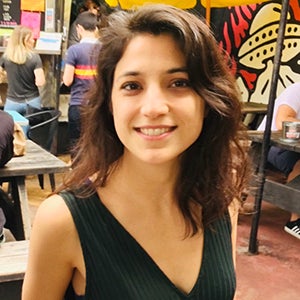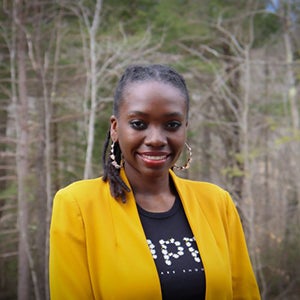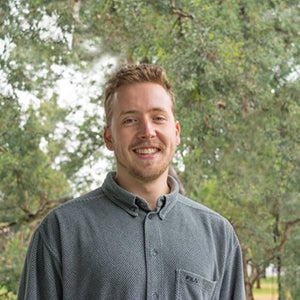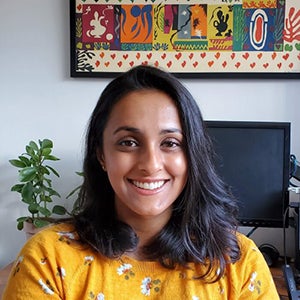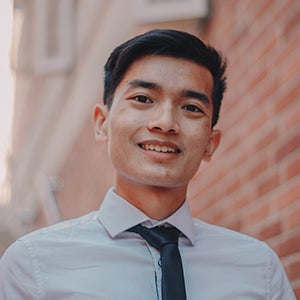Current STS Certificate Students

Margaret Davis
Maggie Davis is a PhD candidate in USC’s Sociology department, and is advised by Professor Andrew Lakoff. She received her BA from the University of Georgia in Sociology and Political Science. Maggie is influenced by scholarship that centers infrastructure in the study of social life. She is particularly interested in extractive infrastructural entanglements—for instance, how abandoned coal mines, stalled and developing pipelines, and imagined projects interact within the same landscapes to shape how communities understand climate risk. She recently completed over a year of field research in West Virginia studying lives and landscapes affected by the development of natural gas infrastructure. Her dissertation project focuses on disputes around the Mountain Valley Pipeline, asking how fossil fuel infrastructures positioned as “transitional” animate experiences of community, citizenship, governance, and public life.
Maria Labourt
Maria Labourt completed her master’s in International Studies at the University of San Francisco, California, funded by Fulbright and the USF International Studies department. For the first years of her Ph.D. program, she has been working on a project that builds on the case of the Los Angeles River and aims to elucidate the ways in which public life and knowledge coalesce in times of ecological crisis. The LAR is emblematic of the processes of settler colonialism, and the triumph of managerial expertise over nature and uncertainty. She has immersed herself in the academic debates of Science and Technology Studies (STS) by taking specific classes and also participating in STS working groups both on campus and across universities.
Alphoncina (Allie) Lyamuya
Allie Lyamuya is a doctoral student at USC Annenberg. Her research interests lie at the intersection of emerging media technologies, transnational governance, and inequality. Specifically, she is interested in the use of algorithmic decision-making systems and other digital infrastructures by governments and humanitarian agencies in migration management and border control. In her recent project, she investigated the design and use of machine learning and predictive analytics by the UN Refugee Agency (UNHCR) in its field operations and humanitarian mission.
Allie holds a Master of Public Policy & Administration with a graduate certificate in Data Analytics and Computational Social Science, and a BA in Legal Studies with a minor in Political Science from the University of Massachusetts Amherst. Before her doctoral studies, Allie worked as a research fellow with the Massachusetts Broadband Institute. She also served as a program administrator for an educational nonprofit based in Boston.
Will Orr
Will Orr is a PhD student at USC Annenberg. His research examines the culture and politics of technologies, with an emphasis on the ways in which the cultural practices of data science shape subsequent technologies and the societies they inhabit. Will’s research has been presented at the American Sociological Association 2019 annual meeting, and published in Information, Communication and Society.
Will is an interdisciplinary scholar. Prior to joining the Annenberg School, Will completed a BA in Sociology and Politics at the University of Melbourne, an Honours degree in Sociology and a Master of Applied Data Analytics at the Australian National University. Will is also a member of the Justice and Technoscience (JusTech) lab at the Australian National University’s School of Regulation and Global Governance (RegNet).
Hamsini Sridharan
Hamsini Sridharan studies historical and contemporary entanglements of digital technologies with environmental imaginaries and speculative futures, asking how such entanglements shape the critique, contestation, and governance of technology.
Hamsini holds an MPA from the USC Price School of Public Policy, where she focused on digital media policy, as well as an MA in Anthropology from Columbia University, where she explored the sociocultural underpinnings of conservation genetics. Her undergraduate degree is in Anthropology and International Studies from the University of Chicago.
Jason Vu
Jason Tuan Vu (he/they) is a first-year PhD student and Provost Fellow in the American Studies and Ethnicity Department at USC. His research interrogates the intersections of settler colonialism, militarism, and carcerality in the formation of global US empire. By engaging with the issue of Southeast Asian refugee deportation, he aims to chart a critical transpacific geography that links settler-military infrastructures to expanding US carceral power. In doing so, he hopes to bring Indigenous and refugee critiques of US empire into closer conversation, pointing toward resonant histories and potential futures of solidarity and resistance.

Stephen Yang
Stephen Yang is a PhD student at USC Annenberg. As a scholar of time, technology, and public life, he studies how technologies and institutions configure the paces, rhythms, and horizons we inhabit, as well as the stakes in what they render urgent, timely, foreseeable. His doctoral research, which examines the fantasies of making life seamless through predictive sensing, ambient infrastructures, and artificial intelligence, is funded by the National Science Foundation.
Yang brings critical research to technology design and policy. He has held research appointments for Microsoft Research, Center for Democracy & Technology (CDT), and Partnership on AI. Prior to USC, he earned his B.S. in Communication and Information Science from Cornell University. More info: www.stephen-yang.com.
